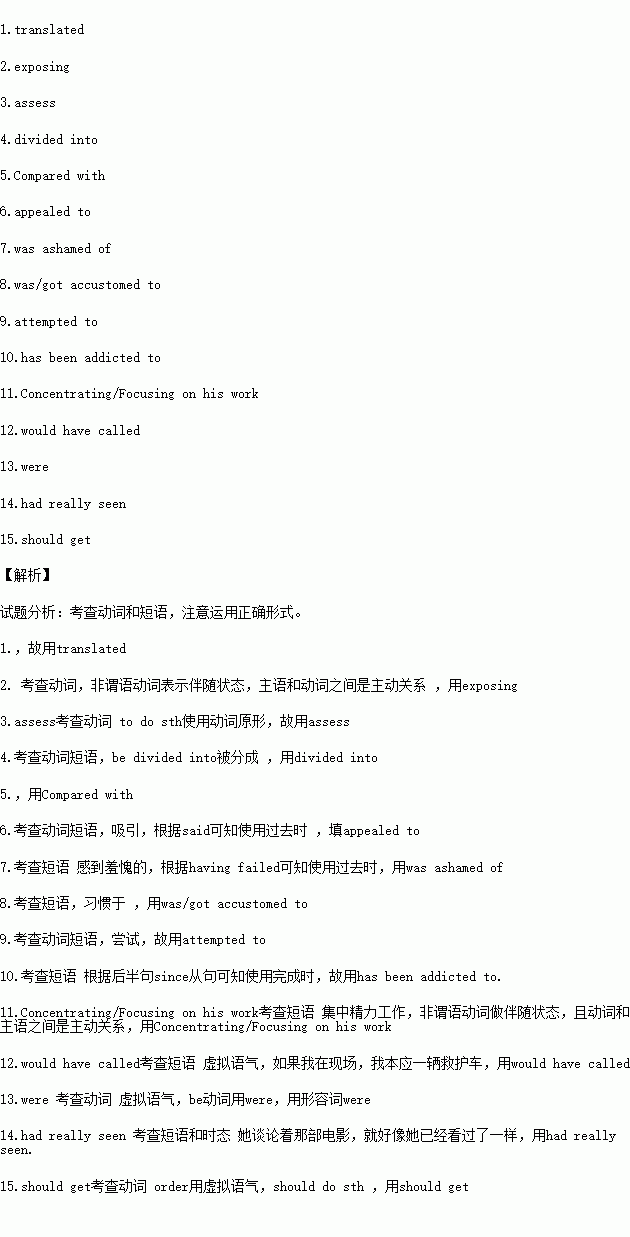题目内容
完成句子
1.A lot of Tang poetry has been _______________(翻译)into English.
2.He smiled suddenly, ____________ (露出) a set of amazingly white teeth.
3.The discussion is just meant to ________ (评估)the strengths and weaknesses of other players
4.The people are ________________________(分成) three groups.
5._________________ (与…做比较) him ,you are lucky.
6.What he said at the meeting _______________________me much.(吸引)
7.The little girl ___________________ (感到羞愧的) having failed in the final exam.
8.Though he was a new-men, he _______________________ (习惯于) hard work.
9.I _________________(尝试)go on with my study in the university, but I could not
10.He _____________________(沉溺于)playing games since he was five years old.
11._________________(集中精力工作) the man forgot the appointment that night .
12.If I had been on the spot , I __________________ (call) an ambulance.
13.I wish I _________________ (be) ten years younger.
14.She talked about the film as if she ___________ it.(see)
15.His order is that all of us ________________(get) there before 5 o’clock.

